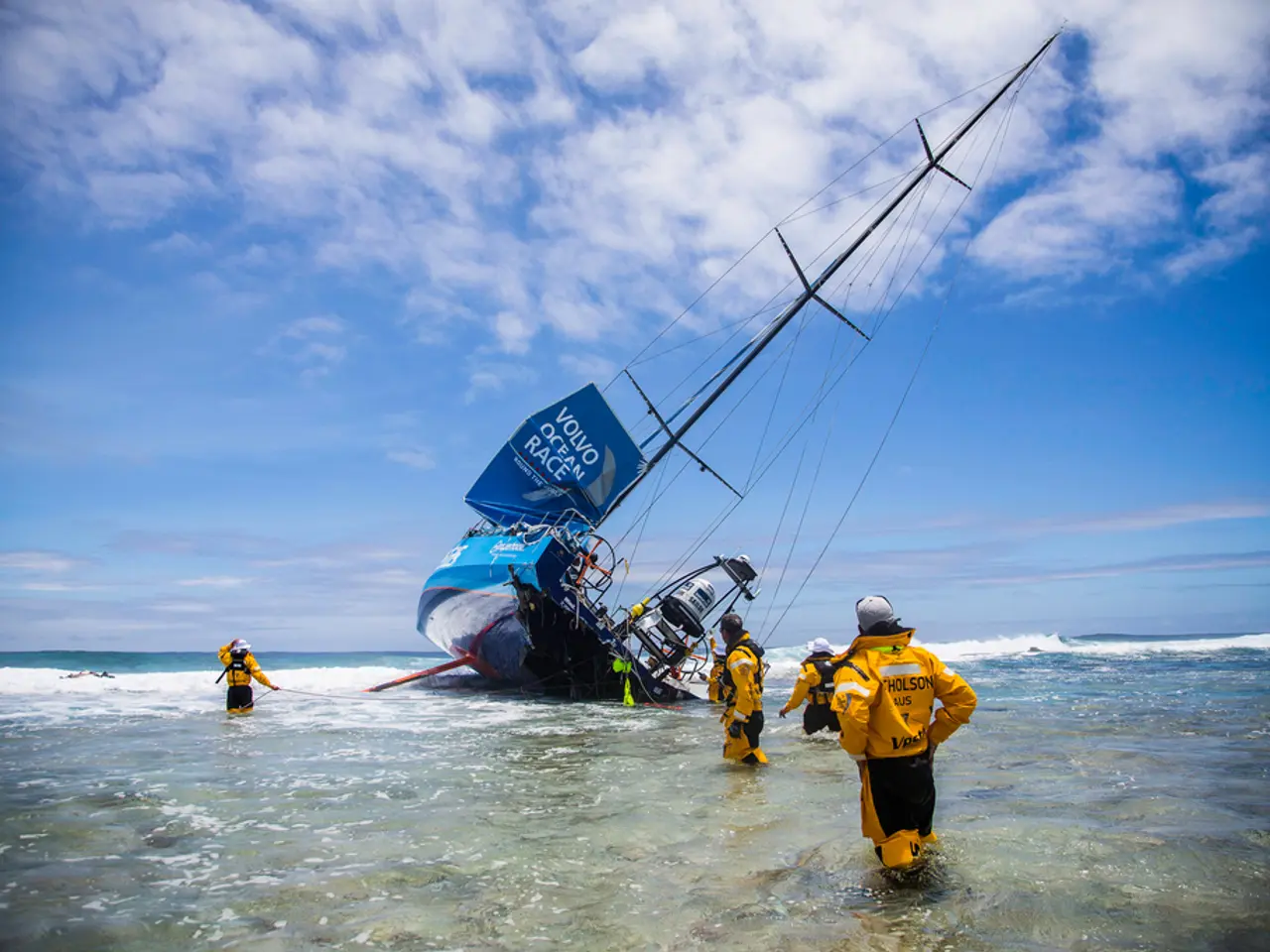Intense heatwave leads to over 100 fatalities in France, with Germany's death toll also increasing
In the sweltering heat of the recent heatwave in France, a concerning trend has emerged. According to Sante Publique, the country's public health agency, the number of drowning incidents has seen a dramatic increase. Between June 1st and July 2nd, 2025, a total of 429 drowning incidents were reported, marking a 95% increase compared to the same period last year [1][2]. This rise has resulted in 109 fatalities, with 19 of these being children and teenagers [1].
The German Life Saving Association (DLRG) has also reported an increase in drowning deaths due to the heatwave in Germany [3]. The surge in water-related accidents is linked to the extreme heatwaves driving more people to seek relief at swimming locations.
In response to this alarming trend, French and German authorities and organizations, including Sante Publique and DLRG, are advocating for preventive measures and solutions to minimize the risk of drowning.
## Preventive Measures and Solutions
1. **Enhanced Surveillance and Lifeguarding**: Authorities are urging for an increase in the presence of trained lifeguards at public swimming areas, especially during heatwaves and peak attendance times [1]. Parents and guardians are also being reminded to closely monitor young children near water, as children are particularly vulnerable in crowded or unsupervised areas.
2. **Public Awareness and Education**: Agencies like Sante Publique and DLRG are running public information campaigns highlighting the dangers of swimming without supervision and the risks posed by heat exhaustion and dehydration [1]. Clear warning signs about water conditions, depth, and potential hazards are recommended at swimming sites.
3. **Early Warning Systems**: Integration of weather and heatwave warnings with water safety advisories helps inform the public about increased risks during extreme weather events [1][3]. Cities and regions are encouraged to activate emergency response plans that include monitoring, outreach, and community support during heatwaves.
4. **Access to Safe Swimming Facilities**: Expanding access to supervised public pools can reduce the number of people swimming in unsafe or unsupervised natural water bodies [1]. Installing barriers around dangerous or unsupervised water areas helps prevent accidental drowning, especially among children.
## Authorities Involved
- **France**: Sante Publique is responsible for tracking health trends and issuing safety advisories. - **Germany**: The Deutsche Lebens-Rettungs-Gesellschaft (DLRG) actively promotes water safety through education, lifeguard training, and public awareness campaigns. - **European Agencies**: The European Centre for Disease Prevention and Control (ECDC) and national public health agencies coordinate responses to extreme weather events and their health impacts.
Experts emphasize that the increase in drowning deaths is a stark reminder of the need for robust preventive strategies. As climate change amplifies the frequency and intensity of heatwaves, these measures become even more critical [3][4]. The scientific community calls for urgent reductions in fossil fuel emissions to mitigate future risks, while local authorities focus on immediate safety measures, public education, and improved infrastructure to reduce drowning deaths during extreme heat events [3][4].
The key message is clear: the need for robust preventive strategies, including public education, enhanced supervision, early warning systems, and access to safe swimming environments—measures actively promoted by DLRG and French public health authorities [1][2][4].
- To tackle the increased number of drowning incidents during heatwaves, there's a call for more focus on environmental-science and climate-change research, as reducing fossil fuel emissions could help mitigate future extreme weather events [3][4].
- Apart from preventive measures in the community, there's a growing emphasis on mental-health initiatives to help individuals cope with the stress and anxiety associated with heatwaves and their resulting consequences [3][4].
- In addition to health-and-wellness and fitness-and-exercise programs, vocational training opportunities in fields like science, environmental-science, and mental-health could empower individuals to play a more active role in addressing these challenges and finding long-term solutions [3][4].








